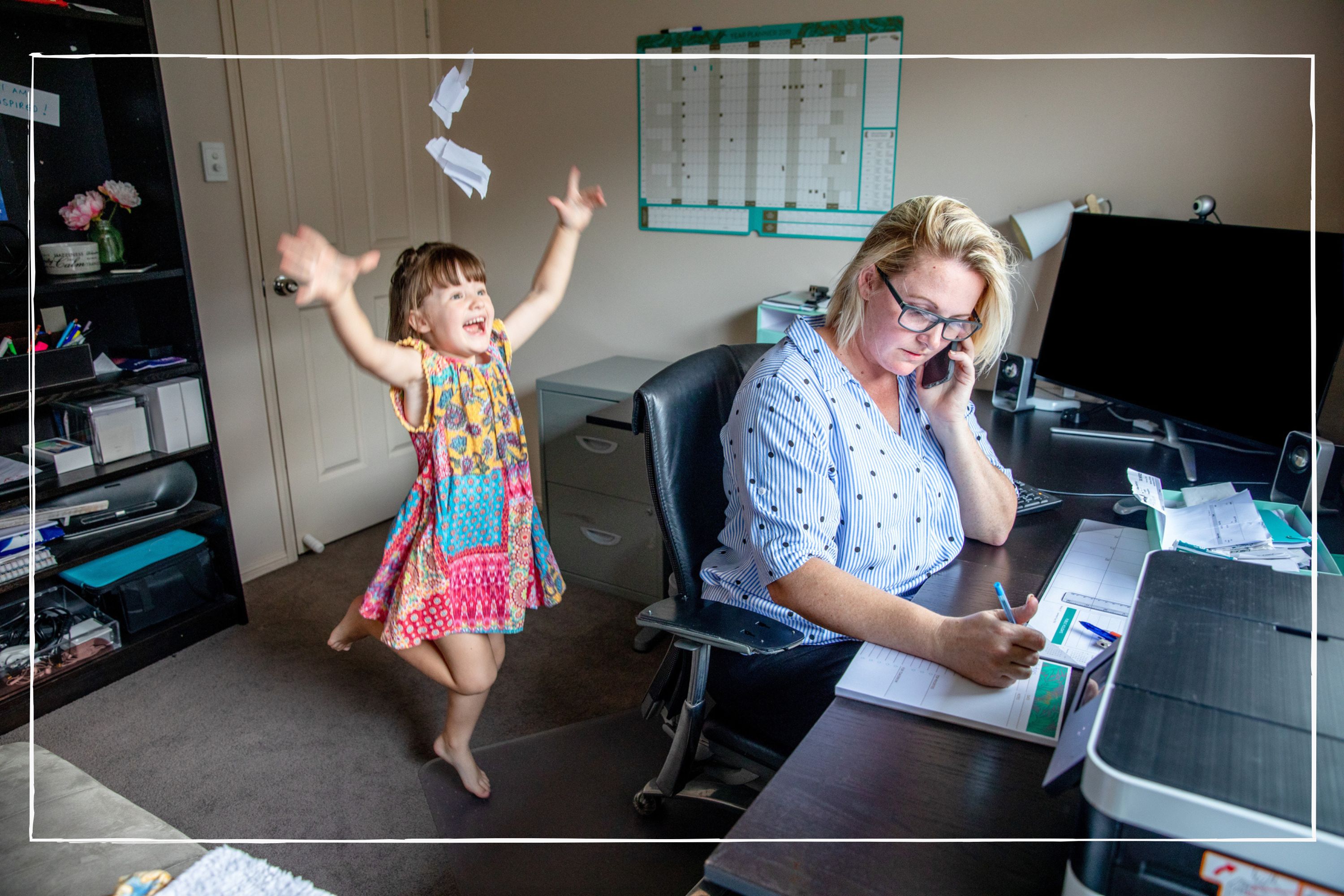How much does nursery cost in 2025? Average costs for parents explained
Wondering how much does nursery cost? Here, we look at average prices and how parents can cut costs to save money


Sarah Handley
How much does nursery cost is an important question for parents to ask. And it's more important now than ever before, given that the cost of raising a child, and in particular average childcare costs in the UK, are soaring.
Understanding when you are eligible to claim 15 or 30 free childcare hours is crucial for parents, especially when the free childcare scheme is being expanded to include more parents. But even with that assistance, paying nursery fees can still make a considerable dent in your household budget. And it's worth bearing the cost of wrap around care in mind when your child starts school, as well as the impact the motherhood penalty could have on your future finances.
Sue Learner, editor of daynurseries.co.uk, says: “Parents are already treading water with the cost of living crisis and now they are seeing nursery fees rise this year as childcare providers struggle to stay sustainable.”
How much does nursery cost?
The average cost of a full-time nursery place (50 hours) for a child under two is £302.10 a week or £14,500 a year (based on children being in nursery 48 weeks of the year), according to data compiled by children’s charity Coram.
The average cost of a part-time nursery place (25 hours) for a child of the same age is £157.68 a week, or £7,569 a year (also based on 48 weeks).
England has higher costs for nurseries compared to Wales and Scotland, and there are also regional variations. For example, the cost of a part-time nursery place for a child under two in inner London is £218.49 a week, which is 69% higher compared to the East Midlands at £129.04 a week.
Nursery costs for those under two are also generally more expensive due to higher staffing ratio requirements for younger children (meaning higher staffing costs), as the table below highlights:
GoodtoKnow Newsletter
Parenting advice, hot topics, best buys and family finance tips delivered straight to your inbox.
| Header Cell - Column 0 | Child aged under two | Child aged two |
|---|---|---|
| Full-time nursery place (50 hours) | £302.10 a week or £14,500 a year | £288.13 a week or £13,830 a year |
| Part-time nursery place (25 hours) | £157.68 a week or £7,569 a year | £157.72 a week or £7,283 a year |
Source: Coram’s Family and Childcare Survey 2024. Annual costs are based on children being in nursery 48 weeks of the year.
Can I get nursery care for free?
Whether you can get nursery care for free will depend on the age of your child and your financial situation. In his Spring Budget 2023, Chancellor Jeremy Hunt announced an expansion of the free childcare system and that by September 2025, working parents will be able to get 30 hours free childcare once their child is nine months old. But this is a big change, and will be phased in over time. From April 2024, working parents of two-year-olds will get 15 hours free childcare, and from September 2024, this will be extended to all children aged nine months and over. The phases of the expansion after that have not yet been announced.
Until those changes are fully in force, you’ll be able to claim the full 30 hours if:
- You live in England
- You and your partner (if you have one) are in paid work
- You each earn at least the equivalent of 16 hours a week at National Living Wage
- You each earn less than £100,000 annually
- You have a National Insurance number
If you don’t qualify for the full 30 hours, for example if one parent doesn’t work, your child will get 15 funded childcare hours. You will need to inform your nursery that you want to take advantage of the free hours when you sign up.
Be warned that it’s unlikely your nursery costs will be completely free as nurseries are allowed to ask for payments to cover the cost of extras like snacks, meals and nappies.

How to keep nursery costs as low as possible
As well as free hours, you can also cut nursery costs by taking advantage of the tax-free childcare allowance, which is a tax-efficient way of paying for nursery.
Editor of daynurseries.co.uk, Sue Learner explains: “For every £8 spent on childcare, the government pays an extra £2, up to the value of £2,000 per child per year (or up to £4,000 per child if they are disabled).”
To be eligible, you must earn less than £100,000 a year and your child must be aged 11 or under.
Note that you cannot get tax-free childcare if you also get universal credit. But if you do qualify for universal credit, you’ll get the child element on top of your standard allowance. This pays £315 a month for a first or only child born before 6 April 2017 or £269.58 a month per child born after that date - you can only claim the child element for up to two children.
If both parents are working, you can also get up to 85% of your childcare costs covered. This is currently up to a maximum of £950.92 a month for one child, or £1,630.15 a month for two or more children.
Make sure you are also claiming child benefit, as you can put this towards your childcare costs. You’ll get £25.60 per week for your first child and £16.97 per week for any children after that.
Money expert Rajan Lakhani, from smart money app Plum, adds: “There are a few things you can do to keep nursery fees lower too. Firstly, if you live in an area where nurseries get oversubscribed quickly, look for a suitable nursery well in advance. That way you will have more choice and may be able to sign your child up to the cheapest option.
“Another tip is to make sure you’re clear on the drop-off and pick-up times, as some nurseries charge steep fees if you are too early or late.”
What to do if you can no longer afford nursery costs
If you can no longer afford nursery costs and you’ve claimed everything you’re entitled to, it could be time to look for an alternative childcare setting, such as a childminder.
Childcare expert and community manager at childminder agency tiney, Lisa Holmes, explains: “Childminding is the most affordable form of high-quality childcare and at least 12% cheaper than nursery, on average. Childminding brings the additional benefits of being a smaller, more intimate setting, meaning your child will receive care that is specific to their needs. Childminders are subject to the same rigorous safeguarding practices as nurseries, so you know your child is in safe hands.”
You could also consider a nanny or an au pair, although bear in mind that an au pair will need to live with you.
Alternatively, it’s worth asking a grandparent or close friend if they are able to help out a few days a week. For more tips, read our guide on how to reduce childcare costs.
Continue reading

Mum of two, Rachel is a freelance personal finance journalist who has been writing about everything from mortgages to car insurance for over a decade. Having previously worked at Shares Magazine, where she specialised in small-cap stocks, Rachel developed a passion for consumer finance and saving money when she moved to lovemoney.com. She later spent more than 8 years as an editor at price comparison site MoneySuperMarket, often acting as spokesperson. Rachel went freelance in 2020, just as the pandemic hit, and has since written for numerous websites and national newspapers, including The Mail on Sunday, The Observer, The Sun and Forbes. She is passionate about helping families become more confident with their finances, giving them the tools they need to take control of their money and make savings. In her spare time, Rachel is a keen traveller and baker.
- Sarah HandleyMoney Editor, GoodtoKnow
-
 How to save money: 28 family-friendly money-saving tips for mums and dads
How to save money: 28 family-friendly money-saving tips for mums and dadsUnderstanding how to save money is key to limiting the impact of rising costs as much as possible
By Sarah Handley Published
-
 14 hidden benefits of your Amazon Prime membership
14 hidden benefits of your Amazon Prime membershipWe reveal the less-obvious perks of a Prime membership that will help you get the most value out of your subscription fee
By Rachel Wait Published
-
 14 surprising ways to spend your Tesco Clubcard vouchers - from restaurants and cinema passes to mini breaks and Disney+
14 surprising ways to spend your Tesco Clubcard vouchers - from restaurants and cinema passes to mini breaks and Disney+Tesco Clubcard vouchers can help you cut the cost of everything from groceries and travel to days out and cinema tickets
By Heidi Scrimgeour Published
-
 How to get Disney+ for free and save up to £79.90 a year
How to get Disney+ for free and save up to £79.90 a yearEven though the streaming giant ended its free trial offering, there are still multiple ways you can get Disney+ for free for up to 12 months
By Sarah Handley Published
-
 Parents of teens who have just taken their GCSEs urged to check child benefit status ahead of August deadline
Parents of teens who have just taken their GCSEs urged to check child benefit status ahead of August deadlineWith a child benefit deadline looming, some parents could see their payments reduced or stopped altogether - here's why
By Sarah Handley Published
-
 Parents should hold off buying this back to school staple 'as close to their first day as possible', says retailer
Parents should hold off buying this back to school staple 'as close to their first day as possible', says retailerWith parents turning their attention to kitting their kids out for the new school year, research suggestions which items should be left until the last minute
By Sarah Handley Published
-
 7 ways to save on back to school essentials, as its revealed parents will spend £2.3 billion in 2024
7 ways to save on back to school essentials, as its revealed parents will spend £2.3 billion in 2024We share ways you can get your child all the bits and bobs they need for the new school year, without breaking the bank
By Sarah Handley Published
-
 What day is child benefit paid around the bank holiday? Everything parents need to know
What day is child benefit paid around the bank holiday? Everything parents need to knowKnowing which day child benefit is paid when it comes to the bank holiday can help families plan their budgets accordingly
By Sarah Handley Published


